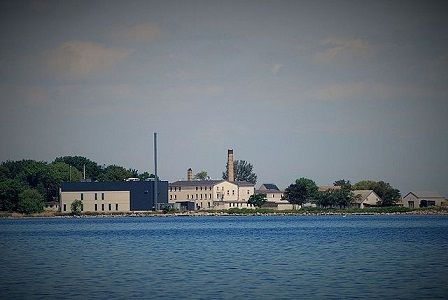As well as attracting criticism on moral and ethical grounds, the neighbours to Denmark’s answer to Devil’s Island are not happy about the plans to use it as a prison for convicted foreigners waiting to be deported and rejected asylum-seekers either.
At a meeting for local residents and politicians attended by more than 200 people yesterday, it was agreed that nobody was in favour of the proposed change-of-use plans for the 17-acre island of Lindholm.
READ ALSO: Island for foreign ‘undesirables’ grabs international headlines
The island is currently being used by the DTU Veterinary Institute as a quarantined area to test against viruses that affect cattle and pigs.
Criminals at the bottom of the garden
Building the island prison was one of the concessions the government made to Dansk Folkeparti in order to get their agreement on the budget for next year.
“It’s a completely crazy idea,” said local Socialdemokratiet politician Brian Bressendorff to DR Nyheder.
A number of those attending the meeting were also concerned for their own safety when the new inmates moved in.
“I don’t want criminals in my back garden. My children have asked us to move because they daren’t have us living here,” said Hanne Petersen from Kalvehave.
Hit them at the ballot box
She went on to say that the politicians responsible deserved to be punished at the next election – a sentiment that was echoed by other participants in the meeting.
Michael Seiding Larsen, the deputy mayor of Vordingborg, who is a member of Venstre, expressed his dissatisfaction with the way his party had been forced to make this concession to DF.
However, he added that “I’m fighting the good fight here and actually don’t really care much what the party bigwigs think. This is our fight and our municipality, so I’m going to fight and not give up,” he said.














